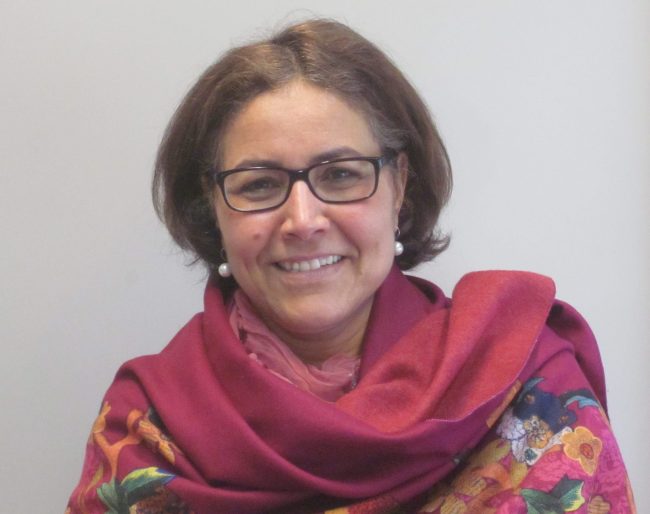
Features
Q & A
IWCA Q&A: Finding the balance
Noura Ziadi works hard – in her research, at home, and in building relationships with those around her.
November 16, 2021 By Alex Barnard

Noura Ziadi has her boots firmly planted on the ground. She’s worked as a research scientist in soil fertility and plant nutrition with Agriculture and Agri-Food Canada at the Quebec Research and Development Centre since 1999, where she has led the Soil Fertility research lab since 2003. Passion – for people and research – is key to Ziadi’s success.
Alex Barnard, associate editor of Top Crop Manager, Fruit & Vegetable and Potatoes in Canada, chatted with Ziadi about how she’s handled balancing career and family, building and maintaining relationships, and the importance of collaborating with others who will support you.
What’s the biggest risk you’ve taken?
Moving to Canada was a risk, because I never expected to stay permanently. I also never expected to have this promising career here in Canada. My first plan was to return to Tunisia for my job and for my family. But following my graduate studies, I got the position I still have today and my husband got a faculty position at Laval University. So, we decided to stay in Canada – and, more specifically, in la belle province! Honestly, I’m really happy, and as a family we are happy with our decision.
What’s one major challenge you’ve faced and what did you learn from it?
In my case, the biggest one was to balance my job and my responsibilities as a mom of three girls. I started my career full-time as soon as I finished my PhD program, so it was not easy. But I progressed very well, taking on responsibilities both at home and at work. I believe this is due to few reasons:
- I’m passionate about my research; I really like what I’m doing! I strongly believe that this is a key point in our lives and jobs. This is my first piece of advice for any student considering a PhD program.
- My organizational skills: I always have a to-do list. I’ve kept this tradition from Tunisia thanks to my mom!
- I’ve had the flexibility to do my work. At the beginning, I did part of my work on weekends to give me the chance to be with my daughters during the week. As far as I can remember, I’ve never missed a school meeting, training course or medical appointment.
- Last but not least, I’m a team player, even at home! I share the responsibilities with my husband – we work as a team.
Consequently, what I learned could be my message and advice for young women: Go, go and go! You can be a good mom and a good scientist at the same time, and I hope that I’m a good example for many women and especially for my daughters. This is my dream!
And on the other side, what’s one of your major accomplishments?
I have a few accomplishments, including different recognitions and awards I have received, of which I’m for sure proud. But the students and postdocs that I’ve hired and trained remain my biggest accomplishment. It is impossible for me to describe my pleasure and pride when I see my students shining in their studies and later in their jobs. It means a lot to me! In general, I have excellent relationships with all the students that I’ve trained; these relationships are still ongoing with all of them.
What’s the best piece of advice you received? What advice would you give to others?
I prepared my first national research proposal for funding in 2004, and I asked Cynthia Grant, formerly of the AAFC-Brandon research centre, to be the lead on my project instead of me. I thought it was too early to me to be a national leader – it was huge for me! But Cynthia didn’t accept; she told me, “No, Noura – you can do it! You are the best scientist to present the study, to justify the budget and to clarify, if needed. Go ahead, and I will be the co-lead.”
So, I submitted the project and it was accepted and funded – and it was a real success! I hired my first PhD student from Grant University in Belgium, initiated my first collaboration with France, which is still ongoing, and the project went from national to international. Since that time, I’ve never stopped leading.
So, my advice to young scientists is: Please believe in your capability and collaborate with nice people who will support you – there are many, don’t worry. You can learn from these people just as I did. But do not forget to work hard and be a nice boss, because relationships with people are more important than funding and publications.
Print this page